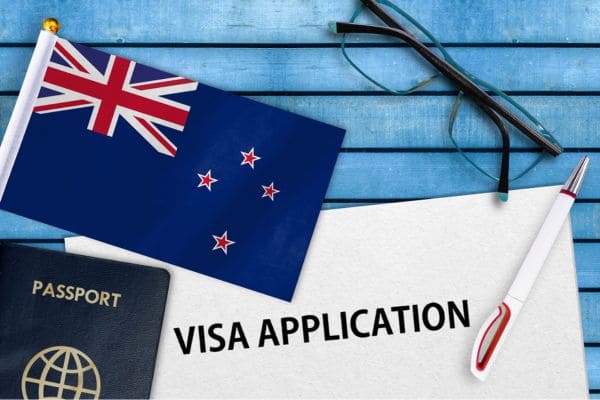
New Zealand’s workforce is evolving—and fast. As industries like construction, healthcare, and engineering expand, the demand for skilled workers continues to outpace local supply. You’re likely feeling the pressure to fill critical roles quickly, but with the right people. That’s why more employers are turning to New Zealand hiring Filipino workers as a practical and reliable solution.
Still, it’s understandable to have concerns—how can you be sure overseas hires meet your industry’s qualifications and are ready to contribute immediately?
This guide will show you why you should offer OFWs jobs in New Zealand. Thanks to rigorous training systems, internationally recognised credentials, and strong English proficiency, Filipino talent is already aligned with New Zealand’s industry and qualification standards.
Before diving into how Filipino credentials compare, it’s essential to understand what they’re being measured against. The New Zealand Qualifications Authority (NZQA) governs the country’s qualifications framework, which includes everything from certificates and diplomas to bachelor’s and postgraduate degrees.
If you’re hiring for roles in regulated industries like electrical work, nursing, engineering, or building and construction, you already know that NZQA assessment and compliance is non-negotiable. These positions require strict credential checks, registration, and practical assessments to ensure safety and quality.
Even for non-regulated fields, qualifications still matter. You want to be confident that your hires bring not just experience, but the right formal training. That’s where qualification recognition, skills assessments, and trusted recruitment partners come in.
The Philippines has long been recognised for producing highly competent professionals because it invests in a dual-path education system that balances academic achievement with hands-on technical training.
TESDA (Technical Education and Skills Development Authority) offers vocational and technical courses that directly align with global workforce needs. These programmes cover in-demand areas like automotive, construction, welding, caregiving, and hospitality. Each graduate must pass a National Competency (NC) assessment to complete their training and prove their skills. They then receive TESDA certification for passing.
On the other hand, CHED (Commission on Higher Education) oversees academic institutions and degree programmes. Many CHED-accredited universities follow international curricula, especially in health sciences, business, and engineering. Filipino nurses, for example, are trained under systems modeled after Western standards.
Filipino workers are also known for strong English communication skills—a huge plus for public-facing roles or safety-critical jobs that rely on clear instructions. Whether you’re hiring a registered nurse, a civil engineer, or a qualified electrician, you’ll likely find a Filipino candidate whose training mirrors global and New Zealand expectations.

So, how do these certifications and degrees stack up against NZ standards?
First, TVET (Technical and Vocational Education and Training) programmes under TESDA are often comparable to New Zealand Level 3–4 certificates. These are typically required for trades and skilled labour jobs.
University degrees from CHED-accredited institutions have also been consistently recognised by NZQA, especially when accompanied by credential evaluations or bridging programmes.
If you’re hiring for a role listed on New Zealand’s Long-Term Skill Shortage List or Green List, chances are the Philippine government has already prepared qualified candidates to meet your needs. Many workers undergo the Department of Migrant Workers’ (DMW) pre-qualification steps, which include document verification, skills testing, and medical exams.
Moreover, bridging programmes and international training providers (ITPs) help ease the transition for workers whose credentials need minor adjustments. In fact, many Filipino nurses and engineers undergo such programmes before or shortly after arriving in New Zealand.
In short, Filipino candidates don’t just meet minimum requirements—they often exceed them.
Navigating international recruitment can be tricky. That’s why partnering with the right agency makes all the difference.
Working with a headhunter for New Zealand companies ensures you’re not just hiring any candidate—you’re hiring someone who has been pre-vetted for skills, experience, and readiness to work in your company and country.
At Staffhouse International Resources, we specialise in matching Filipino talent with New Zealand employers’ needs. Here’s how we make the process smooth and compliant:
• Thorough screening and credential verification
We go beyond just collecting CVs. Every candidate undergoes a rigorous selection process, including credential authentication, skills testing, and background checks.
Whether you’re hiring for a role that requires a TESDA certification or a university degree, we make sure the candidate’s qualifications align with NZQA assessment standards, so you get workers who are competent from day one.
• Legal compliance and documentation
Navigating overseas hiring can be complex, but we simplify it. Staffhouse handles all DMW compliance, contract processing, and visa documentation to clear your hires for work in New Zealand.
We also prepare employment contracts that align with both Philippine labour laws and your industry requirements, reducing the risk of future legal issues.
• Pre-departure orientation
Before deployment, every worker receives a customised induction that covers New Zealand workplace culture, safety regulations, and industry expectations. This cultural and practical preparation reduces onboarding time, minimises misunderstandings, and helps new hires adapt faster, so you get better performance, sooner.
• Ongoing support
Our role doesn’t end at deployment. We offer post-placement support to both you and the employee, helping resolve adjustment issues, tracking worker performance, and ensuring continued compliance with New Zealand employment standards.
This proactive approach promotes retention and protects your investment in New Zealand job hiring for Filipino workers.
Hiring overseas talent doesn’t have to feel like a leap of faith. When you work with the right partners, you gain skilled, qualified, and motivated workers who are ready to make a difference.
Staffhouse International Resources is a DMW-licensed recruitment agency with over 20 years of experience deploying Filipino workers to New Zealand and beyond. Our end-to-end process—from screening and skills matching to post-deployment support—ensures you get talent that aligns with your exact needs and New Zealand’s industry standards.
Ready to build a workforce that works? Reach out to us today to start hiring with confidence.
Facebook: https://www.facebook.com/staffhouseintl
Instagram: https://instagram.com/staffhouseintl
TikTok: https://www.tiktok.com/@staffhouseintl
YouTube: https://www.youtube.com/@Staffhouseintl
LinkedIn: https://www.linkedin.com/company/staffhouse-international-resources